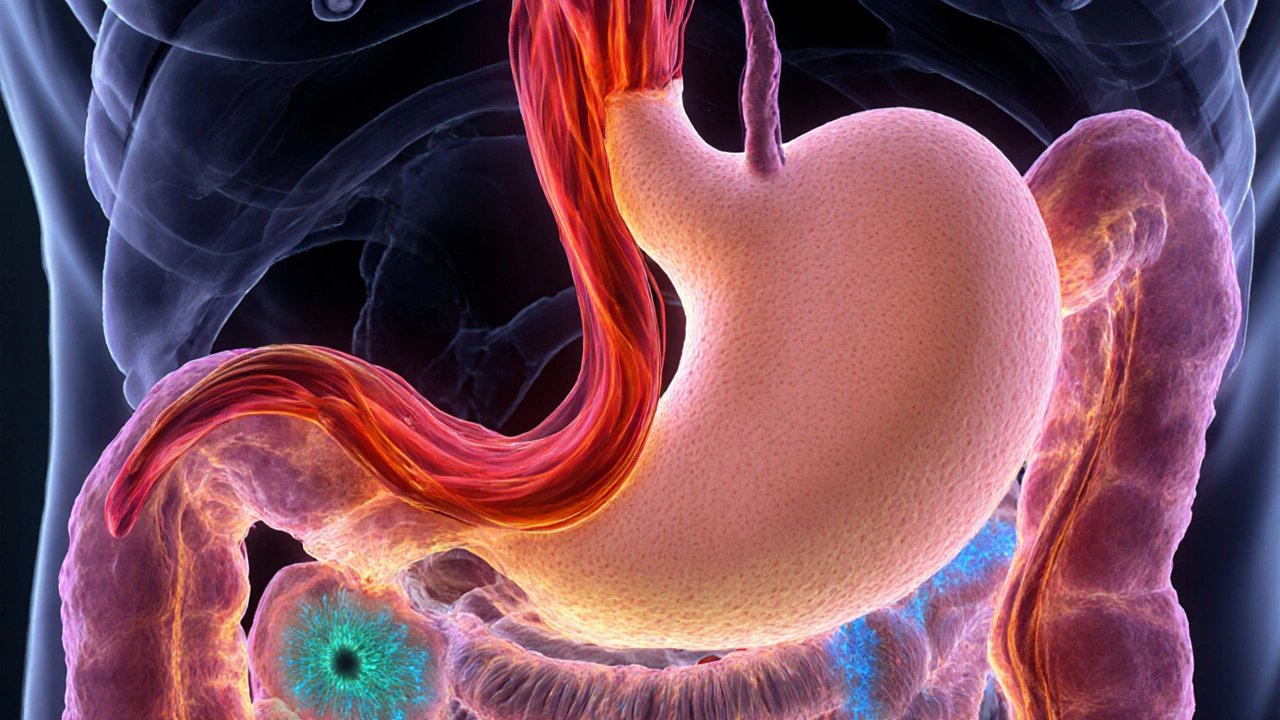Zollinger-Ellison Syndrome Overview
When working with Zollinger-Ellison syndrome, a rare disorder where tumors cause the stomach to churn out too much gastrin. Also known as ZES, it leads to gastric ulcer, painful sores in the stomach lining caused by high acid levels and persistent heartburn. The culprit hormone, gastrin, stimulates the stomach to produce acid, pushes acid output far beyond normal, creating a hostile environment for the gut.
How Doctors Spot and Treat It
Diagnosis usually starts with an endoscopy, a visual exam of the stomach lining to locate ulcers, followed by a blood test that measures fasting gastrin levels. Imaging may locate the tiny tumor (often in the pancreas or duodenum). Treatment focuses on crushing the acid problem. Proton pump inhibitors, powerful drugs that shut down acid production are the first line, often combined with H2‑blockers for extra coverage. In some cases, surgery removes the gastrin‑secreting tumor, and newer therapies target the tumor’s growth pathways.
Below you’ll find a curated set of articles that dive deep into drug comparisons, heartburn management tips, and ulcer‑focused treatments – all useful when tackling the acid overload that defines Zollinger-Ellison syndrome. From evaluating the latest PPIs to practical advice on eating out without flare‑ups, these posts give you concrete steps you can apply right away.
Zollinger-Ellison Syndrome Pathophysiology Explained
Explore how gastrin‑producing tumors drive extreme acid secretion in Zollinger‑Ellison syndrome, its genetic links, symptoms, diagnosis, and treatment.
Keep Reading
